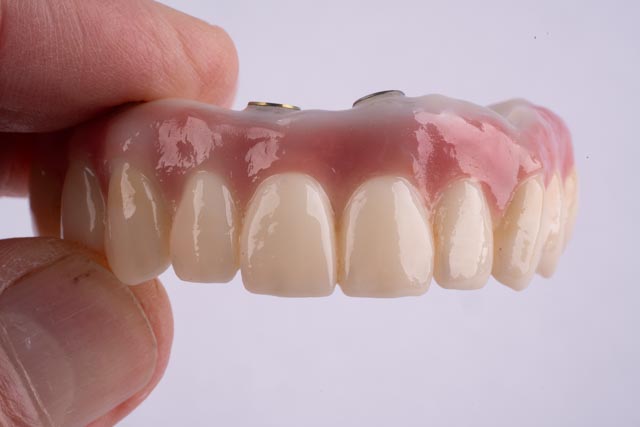Contact Houston Dental Implants & Prosthodontics | Memorial City
- 713-464-6335
-
Memorial Hermann Memorial City
Medical Plaza 3
915 Gessner Road, STE. 515
Houston, Texas 77024 - markstankewitz515@gmail.com

Are you searching for the best solution to restore your smile? At Houston Prosthodontics, Dr. Mark Stankewitz—a board-certified prosthodontist, Fellow of the American College of Prosthodontists (FACP), and Diplomate of the American Board of Prosthodontics—delivers expert dental implant care with over 40 years of experience.
Unlike other dental implant centers where providers may lack advanced certification, our practice combines decades of specialized training with cutting-edge technology and an in-house lab for custom restorations. With a 98% success rate across thousands of implants, we help Houston, Katy, and Memorial City patients eat, speak, and smile confidently again.
Schedule a Consultation Today: Call 713-464-6335 or visit our office at 915 Gessner Road, Suite 515, Houston, TX 77024.
Not all dental implant providers are created equal. Dr. Stankewitz’s credentials set Houston Prosthodontics apart as your trusted choice:
Elite Training: As a board-certified prosthodontist, Dr. Stankewitz completed rigorous post-graduate education. His FACP and ABP distinctions are held by few Houston dentists.
40+ Years of Experience: Over four decades placing implants, mastering solutions from single teeth to complex full-mouth reconstructions.
In-House Dental Lab: We craft crowns, bridges, and dentures on site, ensuring faster turnarounds, perfect fits, and aesthetic precision—unlike competitors who outsource.
98% Success Rate: Thousands of successful implants prove our reliability, far surpassing typical industry averages.
Advanced Technology: We use 3D imaging, digital smile design, and state-of-the-art tools for precision planning and outcomes.
Choosing a board-certified specialist means you’re in the hands of an expert trained to handle the most complex cases with exceptional results.
Dr. Mark Stankewitz, trained at Texas Medical Center for both undergraduate dental school and prosthodontic residency, is the only board-certified prosthodontist in private practice within 10 miles, delivering 96–98% implant success
Curious about getting dental implants? Our interdisciplinary process, led by Dr. Stankewitz, ensures seamless results:
Precision Planning with Dr. Stankewitz: The journey starts with a consultation and 3D imaging at our Houston office. Dr. Stankewitz designs the exact placement for optimal function and aesthetics, discussing costs and timelines upfront.
Expert Surgical Placement: We partner with board-certified oral surgeons who follow Dr. Stankewitz’s precise prosthetic plan, surgically embedding the titanium posts into your jawbone.
Healing and Integration: Over 3-6 months, implants bond with your jawbone (osseointegration). We monitor your progress closely and provide clear aftercare using temporary restorations during this phase.
Prosthetic Perfection: Once healed, our in-house lab crafts your final custom restoration—crowns, bridges, or dentures—finished by Dr. Stankewitz for unmatched fit and look.
Our interdisciplinary approach—combining prosthodontic planning with surgical precision—is what sets us apart.
The process is seamless and patient-focused:
Consultation: Dr. Stankewitz evaluates your health, goals, and jawbone with 3D imaging, crafting a custom plan.
Placement: Our surgical partners embed implants with precision, often under sedation for a pain-free experience.
Healing: Implants integrate over months, with temporary options available.
Restoration: Final custom prosthetics complete your smile, fitted by Dr. Stankewitz.
Expect world-class care at every step, ensuring a smooth and successful journey.
Implants are the gold standard for tooth replacement, offering superior benefits over traditional dentures or bridges:
Restored Functionality: Eat, speak, and chew with confidence and strength equal to natural teeth.
Natural Appearance: Custom-crafted restorations from our in-house lab ensure your implant blends seamlessly with your existing smile.
Bone Preservation: Implants stimulate the jawbone, preventing deterioration and maintaining facial structure that dentures cannot.
Unmatched Durability: With proper care, implants can last 20+ years or a lifetime, far surpassing the longevity of other options.
We offer tailored solutions for every need, all overseen by Dr. Stankewitz’s board-certified expertise:
Single-Tooth Implants: Replace an isolated missing tooth with a custom crown and single implant.
Full-Mouth Dental Implants: Comprehensive restoration using multiple implants to support a full-arch prosthesis for total smile transformation.
All-on-4® Dental Implants: A streamlined, cost-effective method using four strategically placed implants per arch for secure, fixed full-arch dentures.
Implant-Supported Dentures: A hybrid solution that uses implants for enhanced stability and retention compared to traditional removable dentures.
A single-tooth implant typically ranges from $6,000 to $7,000, which includes the titanium post, abutment, and the final custom-crafted crown. Full-mouth or All-on-4 solutions vary based on complexity. We offer transparent pricing and financing options.
The full process typically takes 3 to 9 months. The majority of this time is dedicated to the healing phase (osseointegration), where the implant fuses with the jawbone. Planning and final restoration placement are much quicker.
No. The implant placement procedure is performed under local anesthesia or sedation, ensuring you feel no pain during the surgery. Post-procedure discomfort is generally minimal and manageable with over-the-counter pain medication, often comparable to a tooth extraction.
All-on-4® uses four strategically angled implants to support a full arch of teeth, often requiring less bone density and minimizing the need for bone grafting. Traditional full-mouth implants use 6-8 or more implants per arch for maximum support. Dr. Stankewitz will determine the best solution for your bone health and budget.
A board-certified prosthodontist like Dr. Stankewitz has specialty training focused entirely on tooth replacement and restoration. This expertise is crucial for planning the prosthetic stage first, ensuring the implant placement results in the strongest, most aesthetic final tooth—a crucial difference from providers who only perform the surgical placement.
Call Today: 713-464-6335
Location: Memorial Hermann Memorial City Medical Plaza 3 915 Gessner Road, STE. 515 Houston, Texas 77024
Email: markstankewitz515@gmail.com
